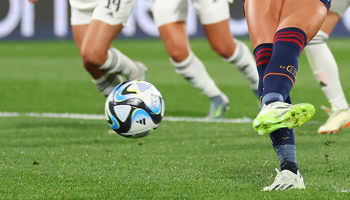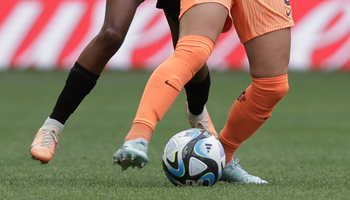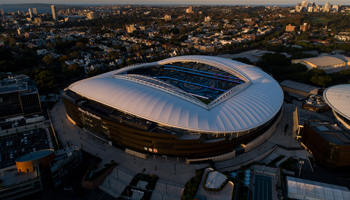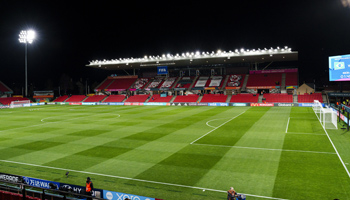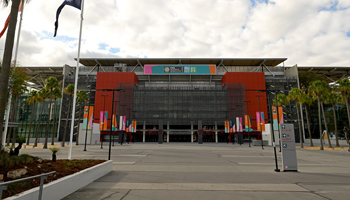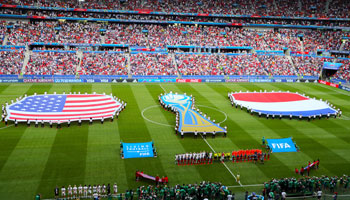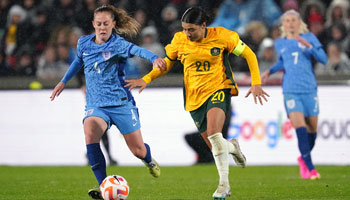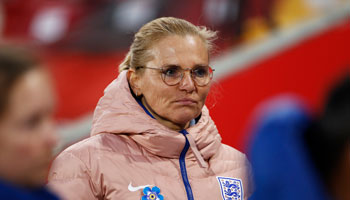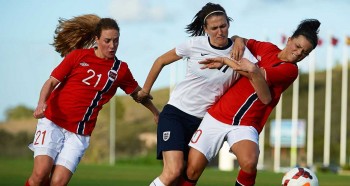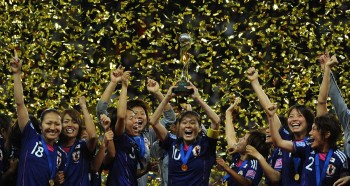The fallout from Luis Rubiales kissing Jenni Hermoso on the lips after the Women’s World Cup final continues, with Hermoso accusing the Spanish football federation of ‘intimidation’ after it called up a host of players who had announced a boycott.
Here, we take a look at how the controversy has unfolded.
August 20 – Rubiales, who had earlier been filmed grabbing his crotch in celebration of Spain’s 1-0 victory over England in the World Cup final while standing alongside Spain’s Queen Letizia and 16-year-old Princess Infanta Sofia in the VIP box at Stadium Australia, kisses forward Jenni Hermoso on the lips during the medal ceremony. Hermoso is later heard in a social media post saying she “didn’t like” the kiss.
August 20 – Later the same night, the RFEF releases a statement on Hermoso’s behalf in which she is quoted as saying: “It was a totally spontaneous mutual gesture due to the immense joy of winning a World Cup. The president and I have a great relationship, his behaviour with all of us has been excellent and it was a natural gesture of affection and gratitude.”
August 21 – After his behaviour is described as “unacceptable” by Spain’s acting culture and sports minister Miquel Iceta, Rubiales issues a video statement apologising for his actions and saying: “There is something I regret, and it was what happened between me and a player, with whom I have a fantastic relationship, just like with the others, where I have certainly made a mistake. I have to admit it.”
August 22 – Spain’s acting Prime Minister Pedro Sanchez brands Rubiales’ conduct “unacceptable” and his apology “not sufficient” during a reception for the victorious players on their return. The Association of Spanish Footballers (AFE) condemns such behaviour as “never appropriate or acceptable”.
August 23 – World players’ union FIFPRO calls on governing body FIFA to investigate the “deeply lamentable” incident.
August 24 – FIFA opens proceedings against Rubiales over alleged breaches of sections of its disciplinary code covering “offensive behaviour and violations of the principles of fair play”.
August 25 – Standing before representatives of Spain’s regional federations, clubs, players, coaches and referees in Madrid, a defiant Rubiales repeatedly insists he will not resign and accuses “false feminists” of mounting a witch-hunt, to applause from sections of the audience. Spain midfielder Alexia Putellas takes to social media to describe his stance as “unacceptable” and the Spanish government signals its intention to push for his suspension.
August 25 – FUTPRO releases a statement signed by 81 players, including every member of the World Cup-winning squad, indicating their unavailability for the national team while Rubiales remains in his post.
August 25 – Hermoso releases a statement accusing the RFEF of presiding over “a manipulative, hostile and controlling culture” and placing her under “continuous pressure to come up with a statement that could justify the act of Mr Luis Rubiales”.
August 26 – The RFEF threatens Hermoso with legal action over her comments. Rubiales is later banned “from all football-related activities at national and international level” for an initial period of 90 days by FIFA.
August 26 – Spain women’s coaching staff, with the notable exception of manager Vilda, resign en masse. Vilda later criticises Rubiales’ conduct in a statement issued to Marca, saying: “There is no doubt that it is unacceptable and does not reflect at all the principles and values that I defend in my life, in sport in general and in football in particular.”
August 28 – Reports in Spain say Rubiales’ mother, Angeles Bejar, is on hunger strike after locking herself in a church in protest at her son’s “inhuman” treatment at the hands of his critics.
August 28 – The regional heads of Spanish football demand Rubiales’ resignation as reports claim the RFEF has asked UEFA to suspend its teams from international competition.
August 30 – UEFA president Aleksander Ceferin describes Rubiales’ behaviour as “inappropriate” – but calls for FIFA’s investigation to be allowed to run its course.
August 31 – England manager Sarina Wiegman says the crisis surrounding Spanish football “really hurts” and shows there is still a “long way to go” in the women’s game and society.
September 4 – Spain’s men’s national team condemn Rubiales’ “unacceptable behaviour” but call for unity as they focus on upcoming Euro 2024 qualifiers.
September 5 – RFEF apologises for the “enormous damage” caused by Rubiales’ actions.
September 5 – Vilda is sacked as Spain head coach, 16 days after leading the team to World Cup glory.
September 6 – Hermoso formally submits a complaint about Rubiales to Spain’s national prosecutor’s office.
September 8 – Spain’s national prosecutor’s office files a complaint to the high court from Hermoso about Rubiales.
September 10 – Rubiales announces he has resigned as RFEF president, saying: “After the rapid suspension carried out by FIFA, plus the rest of proceedings open against me, it is evident that I will not be able to return to my position.”
September 15 – Twenty-one of Spain’s World Cup-winning squad issue a statement saying Rubiales’ resignation is “not enough” to trigger their return to national-team duty.
September 15 – Rubiales appears at Spain’s National Court and denies any wrongdoing, but judge Francisco de Jorge issues restraining order that prohibits him from being within 200 metres of Hermoso.
September 18 – New Spain coach Montse Tome calls up 15 of the World Cup-winning players to the Nations League matches against Sweden and Switzerland but does not include Hermoso, saying: “We stand with Jenni. We believe that the best way to protect her is like this.”
September 18 – Players issue statement refusing their call-ups.
September 19 – Hermoso accuses the RFEF of ‘intimidation’ and making ‘threats’, and also questions Tome’s rationale for leaving her out, asking: “Protect me from what?”
Join bwin today and receive up to £20 money back as a FreeBet if your first wager (3+ selections at odds of 1/2 (1.5) or greater) is a loser! Terms and conditions apply.
